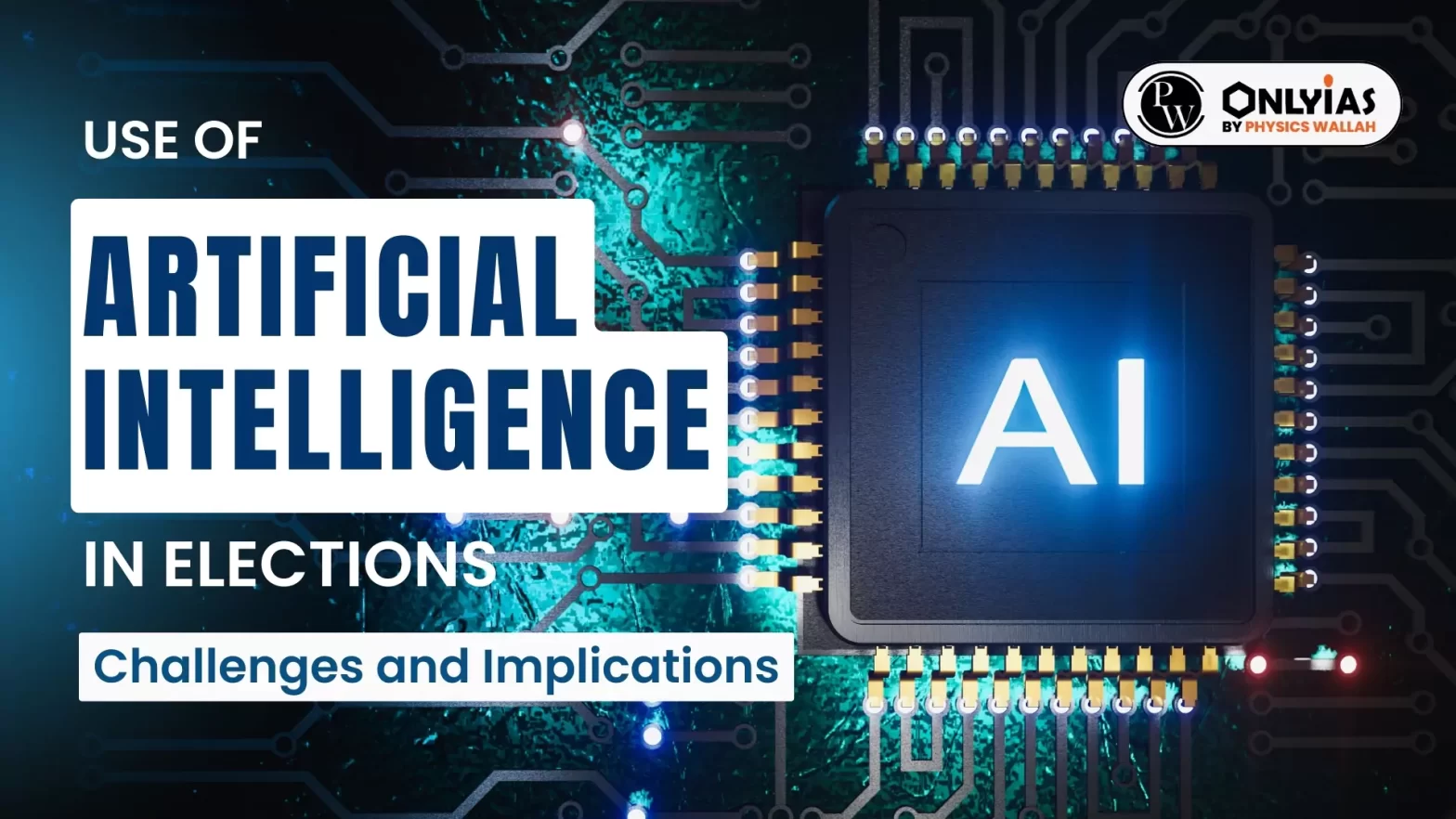Context
AI and deep fakes are increasingly being used to manipulate elections worldwide.
Introduction to the Use of Artificial Intelligence in Elections
- Examples of AI Influence in Politics: Argentina’s “AI-generated” election, Turkey’s opposition leader portrayed as a Kurdistan supporter.
- AI’s Potential Impact on the 2024 Elections: The potential impact of AI on the 2024 elections, with over 4 billion voters across 50+Countries.
- AI’s Threat to Democratic Processes: Al poses a significant threat to democracy and fair elections.
Enroll now for UPSC Online Course
The Rise of Deepfakes
- Origins of Deepfakes: First used in 2017 by a Reddit user to create vulgar videos of Hollywood celebrities
- Proliferation of Deepfakes: AI has made creating deepfakes easy and accessible, with fake videos generated in as little as 2 minutes
- Deepfakes in India: 71% of Indian adults use the internet, but most are digitally illiterate, making deepfakes a dangerous issue
- Viral Threat: Fake videos can easily go viral on social media and impact elections, similar to the use of calling in 2007, social media in 2014, and WhatsApp in 2019.
Is the Use of Artificial intelligence in Elections a Threat to Democracy?
- Imperative of Free and Fair Elections: Free and fair elections are essential for the survival of democracy.
- Manipulative Power of AI-Generated Videos: AI-generated videos can manipulate voters’ choices, create misinformation, and spread fake news.
- This violates the spirit of democracy and prevents fair elections
- Deepfake Dynamics in Politics: Deepfake videos can defame political contestants, as seen in Argentina and Indonesia.
- Politicians are also using deepfakes to improve their image and attract voters
Use of Artificial intelligence in Indian Elections
- Artificial intelligence’s Growing Influence in Indian Politics: Al is being prominently used in India, with examples from DMK party and PM Modi.
- BJP and Congress are using deepfakes to defame opponents
- World Economic Forum’s Alert: World Economic Forum’s Global Risk Report 2024 highlights the threat of AI to Indian elections
- Political Parties’ Unethical Requests: The Indian Deepfaker company founder revealed that parties approached them to create fake, unethical videos
Information Warfare and Foreign Interference
- Violating Sovereignty of a Nation: Enemy countries can use AI to intentionally rig elections, violating the sovereignty of the targeted country.
- Russia has been accused of interfering in US elections
- Microsoft’s Warning: Microsoft reports that China is preparing to use deepfakes to influence elections in the US and India, compromising India’s security
- Potential Threat: Pakistan’s ISI may also attempt to create unrest in Indian elections using AI
Consequences and Countermeasures
- Threat to Democratic Institutions: Extensive AI manipulation can erode trust in democratic institutions and lead to riots, threatening the unity and integrity of the country.
- Social Media Response: Social media giants have signed an accord to control deepfakes but have not banned .them
- Self-Regulation Efforts: Deepfake companies have adopted self-regulation through the Ethical AI Coalition Manifesto
- Algorithmic Challenges: Social media algorithms are failing to detect fake videos, and users can upload them using VPNs, making tracking difficult.
- Importance of Public Education: Educating people in India about AI videos is crucial to help them differentiate between real and fake videos.
- Google’s Efforts in Deepfake Detection: Companies like Google have launched tools like Shakti to identify deepfakes.
Enroll now for UPSC Online Classes
Conclusion
Without concrete steps to combat AI’s influence on elections, we may face a dystopian society like that in George Orwell’s”1984′.People’s freedom and the electoral sanctity of the country are at stake. Addressing the threat of AI in elections is crucial for the survival of democracy.
Also Read: New Delhi AI Declaration
| Prelims PYQ (2021):
Consider the following statements:
1. In India, there is no law restricting the candidates from contesting in one Lok Sabha election from three constituencies.
2. In 1991 Lok Sabha Election, Shri Devi Lal contested from three Lok Sabha constituencies.
3. As per the existing rules, if a candidate contests in one Lok Sabha election from many constituencies, his/her party should bear the cost of bye -elections to the constituencies vacated by him/her in the event of him/her winning in all the constituencies.
Which of the statements given above is/are correct?
(a) 1 only
(b) 2 only
(c) 1 and 3
(d) 2 and 3
Ans: (b) |
![]() 20 Apr 2024
20 Apr 2024

